Over the years, the media has represented or, rather, misrepresented women as entities related to men who need to be taught and trained and have no individual identity aside from ‘belonging to men‘. In this context, Season 3 of Never Have I Ever, released on Netflix on August 12, establishes the identity of women around their own brilliance as they encounter, circumvent and evolve around the male gaze and gendered expectations. Women in this show are smarter than their male counterparts—and the men do not appear to be insecure about their masculinity.
Created by Mindy Kaling and Lang Fisher, Never Have I Ever has Maitreyi Ramakrishnan, starring as Devi—a free, flawed, and fearless character in Sherman Oaks High school. Devi’s parents shifted to the U.S even before she was born, and Devi, though Desi in her roots, is American in her aspirations and lifestyle. After suddenly losing her father, Devi tries to process her trauma as she continues to engage and, at times, wilfully create high-school drama.
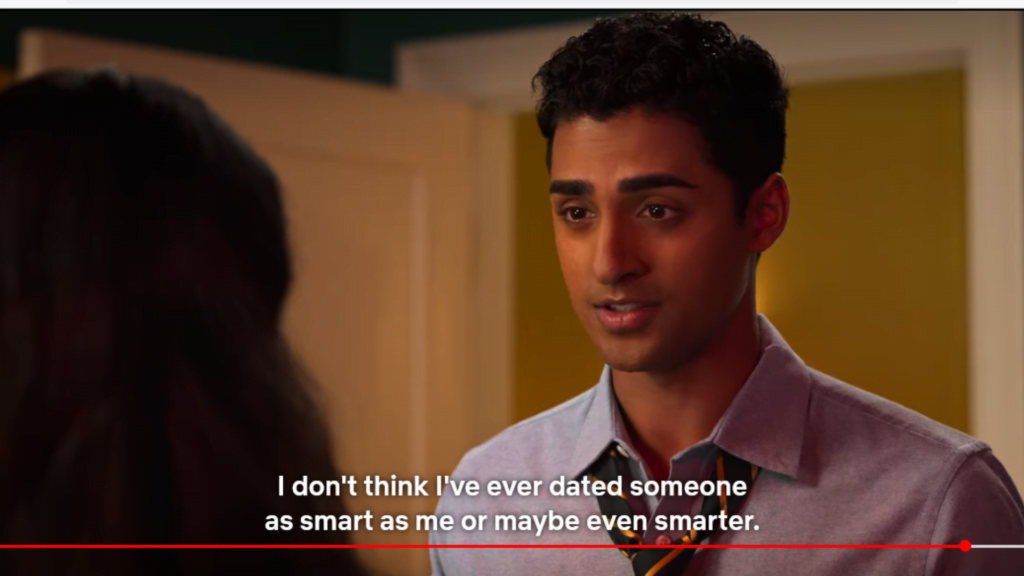
The third season of Never Have I Ever, albeit not as sparkly as the previous ones, and while incorporating typical teenage drama and rebellion without any extraordinary plot, does not mould women’s brilliance around being mansplained by men. Unlike caricaturing every other character to focus on the central one, the writing shapes every individual on the show alongside their equations with each other.
“I don’t think I have ever dated someone as smart as me or even smarter. I think I like it.”
“Well, I like it too. Being smarter than you.”
This conversation happens between Nirdesh, Devi’s then partner, and Devi after she defeats him in a debate as Nirdesh happily accepts Devi as the smarter of the two. The act in itself is the bare minimum, only that the entertainment hitherto has vehemently curbed itself from portraying the same for decades. This scene in Never Have I Ever is one of the many scenes in the show where the woman is brighter than the man, and where defeating him or tutoring him is portrayed as normal.
Season 3 of Never Have I Ever, released on Netflix on August 12, establishes the identity of women around their own brilliance as they encounter, circumvent and evolve around the male gaze and gendered expectations. Women in this show are smarter than their male counterparts—and the men do not appear to be insecure about their masculinity.
Devi has two female friends and quite like real-life friendships and quite unlike the fabricated ones where the lead female character has two female friends parroting every phrase she utters, Devi’s best friends have their own opinions and lives. The first season of Never Have I Ever established them as Fabiola Torres, the captain of the High School Robotic Team, and Eleanor Wong, President of the Drama Club.
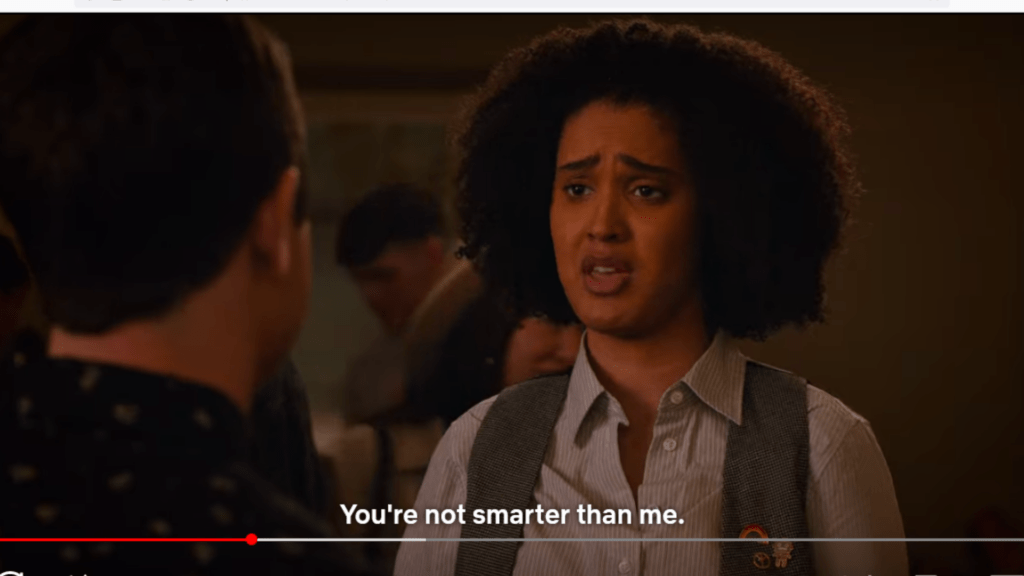
It also contextualised Devi’s therapist, Doctor Jamie Ryan, a child psychologist, and Devi’s cousin Kamala, a biologist eagerly pursuing her Ph.D. at Caltech, while Devi’s mother, Nalini Vishwakumar, was introduced as a dermatologist. Nalini is also grieving her husband’s death while living her life, continuing her profession, going out at times, and providing for Devi. The same is true for Devi’s teacher, and a college counsellor, a White man, taking the name of his wife after marriage.
In Never Have I Ever, the women also rightfully expect their partners to show up for their work, and the men do it too of their own accord.
Unlike how mass media has been projecting educated and qualified women as incapable of dating or being dated, Devi’s mother, Nalini Vishwakumar, who is very particular about her career and finances, is introduced as the first person ever to win the Bevins Surgical Award as a resident to a potential date, who is quite impressed by the same.
Paxton, ace swimmer, popular kid, and Devi’s intermittent partner throughout the show looks up to Devi’s intellect, learns from her, and thanks her for pushing him hard in his speech. But Devi’s role is not limited to clapping for Paxton’s success; she is focused on hers. When Ben, another opulently affluent kid from the school who is a brilliant scholar, is academically condescending to Aneesha, a pro at soccer, Aneesha dumps him saying, “I deserve someone who is excited to be with me just as I am and who doesn’t wish I was someone else.”
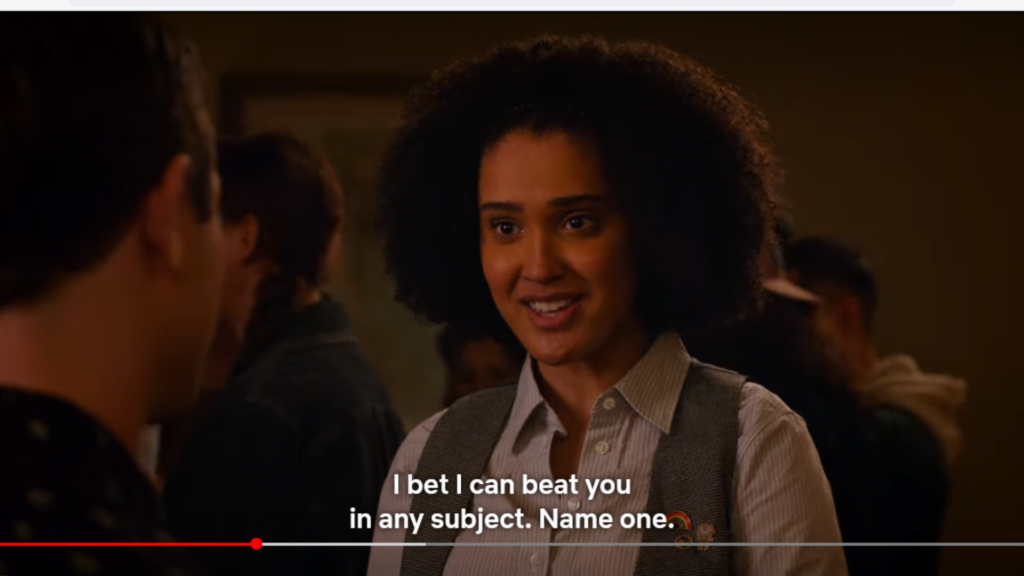
Also read: Eight TV Shows For The Feminist In You
Never Have I Ever does not glorify teenage girls suffering in toxic relationships or relationships which affect their academic performance. For example, when Fabiola gets an 82 in an exam, a drowsy her exclaims, ”An 82. A freaking 82. I don’t know how this happened. I have never gotten below an A before.” Then, she decides to end her long-distance relationship spanning time zones with her girlfriend.
This is not to state that the show does not reflect the patriarchal society. Through a conversation in the previous season about how Nalini’s husband, Devi’s father Mohan had missed an event where Nalini was given an award because Mohan was unemployed at the moment, he comes to accept and apologise for the same.
Even the third season of Never Have I Ever starts with Devi walking in with Paxton while everyone in the high school considers her way out of his league, even though Devi is probably the smartest in her class. Of course, Devi has harmed Paxton interpersonally in the past, but most people are only looking at the surface, comparing how “uncool” Devi appears next to him, going as far as to claim that maybe Paxton is doing Devi the favour of dating because she is dying or only because she is sleeping with him.
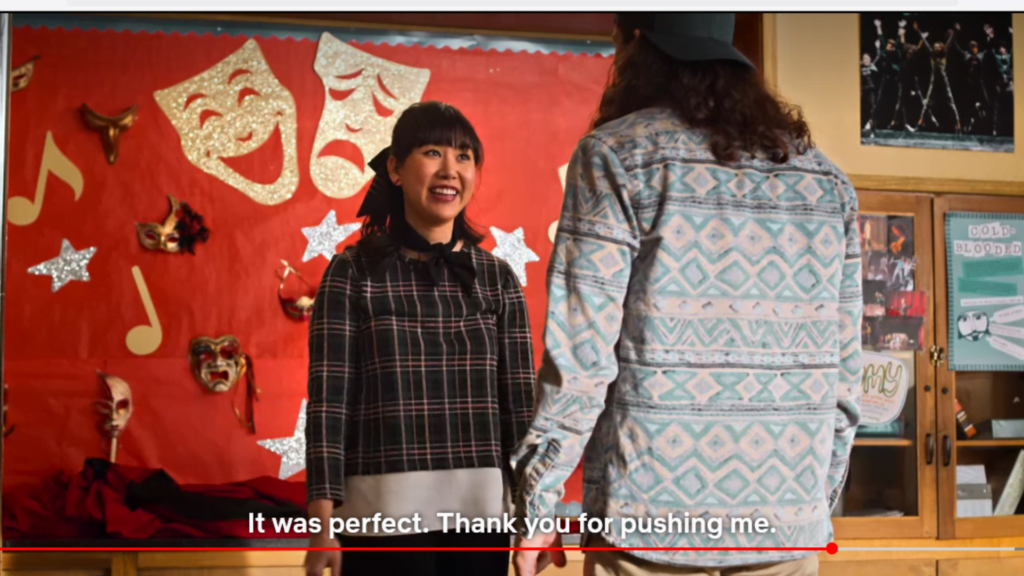
The interpersonal and individual trajectories are only deliberated upon by their friends, and even the school’s gossip TikTok Whistleboy run by the not-so-clandestine Eric Perkins, says the same. At one point, even Devi asks her friends, “We are a good couple? Like, it’s believable that we are together, and one person wouldn’t have to be a gigantic whore to make the other like them, right?”
Paxton is also really supportive of her adopted sister, who is a design student, while Ben later falls for Margot in the Art class, who is way more brilliant than him at it and for whom he has to let go of his ego of tutoring people and instead get tutored by her. Never Have I Ever, however, does not glorify women as bereft of flaws or whims or even internalised misogyny.
It is strikingly illustrated when Kamala, Devi’s cousin who is a biologist pursuing a Ph.D., is being conditioned and coaxed into an arranged marriage, and in the previous seasons, was even advised to peak less about her Ph.D. and more about cooking, etc., in her meeting with the parents of prospective grooms, and overwhelmed by the pressure, she decides to flee the house while the prospective groom and his parents are at the house.
Later, Devi and Kamala’s grandmother Nirmala Vishwakumar, threatens Kamala with a knife, albeit to admonish and not assassinate, stating that the knife should be the least of Kamala’s worries, and that “If you weren’t so beautiful, I would have slapped you.”, given the ordeals that Nirmala is going to throw her way next even as Kamala had to later eat broken snacks instead of dinner because Nirmala would not allow her the latter.
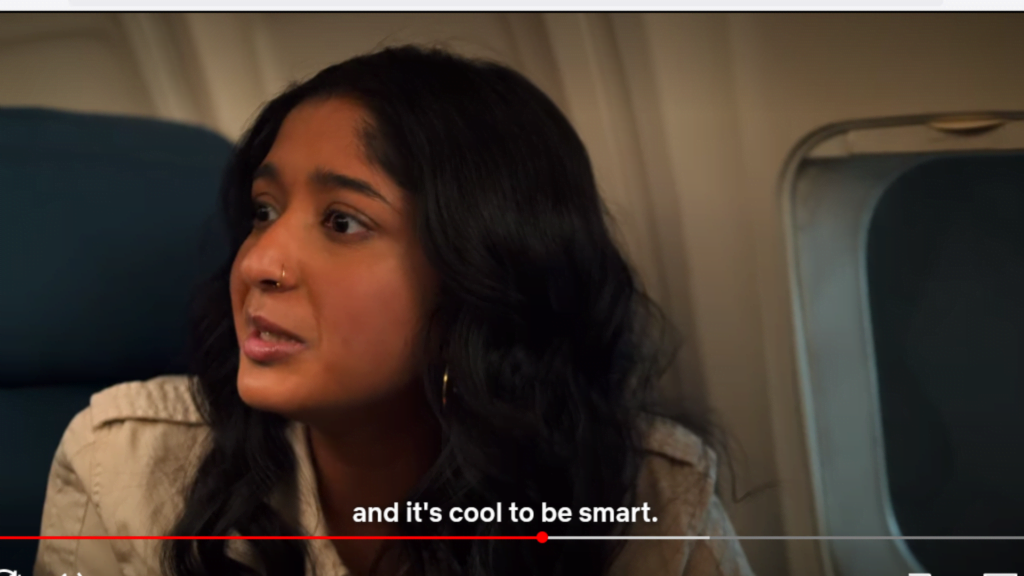
Nirmala declares she will never speak to Kamala again and takes away her plate, slaps her slightly when she extends her hand to take food, and says she is disowning her, and when Kamala tries to placate her by pressing her feet, she asks her to stop and continues to ignore her.
Eventually, Nirmala throws a mixer to find Kamala a “nice guy”, read, an upper-caste, upper-class guy where all the guys are overtly educated. In a private moment, she later also explains to Kamala about the tribulations she had to face with her husband and how “you don’t want to be with someone who is constantly making messes for you to clean up” so that she does not ‘have to be a parent to him like I was to my husband.”
Even the upper-caste, upper-class women in Never Have I Ever glorify arranged married endogamy. Kamala is rightfully afraid of losing her freedom in this system of marriage, and Nalini strives to convince Kamala to favour them by mocking Nalini’s sense of taste and ambitions of her younger years and further elucidating that “a part of the reason why it worked was that our families just went into it wanting the same things.”
Never Have I Ever does have its own points of conflict, though. While it does destigmatise the term ‘feminist‘ through the words and actions of teenage girls with the male History teacher calling the bra oppression, burning it in class, and extending extensive endeavours to study the women’s history movement in her class, it continually projects the upper-caste, upper-class culture.
Every time a statement such as this is uttered, not once is there any conversation in Never Have I Ever about the absolute paucity of rights that women have in arranged marriages ,and that the lower divorce rate is not because almost all women are happy and most marriages are successful but because women most often have no way out of it. Later, Kamala tells Prashant, “Maybe I don’t want to marry you, but also that maybe I don’t want to marry anyone.”
Post this, Kamala decides to live on her own, unlike Devi’s mom, who had agreed to marry an arranged marriage prospect she had been set up with while only in the third year of her medicine course. She decides to move out and Nalini eventually supports her stating that she is ”a brilliant young woman who is perfectly capable of making decisions for yourself” and invites her to dinner every time Kamala’s new neighbourhood gets too much for her. Kamala chooses to be with Dr. Kulkarni, an English teacher in a high school, who is lesser qualified and earns less.
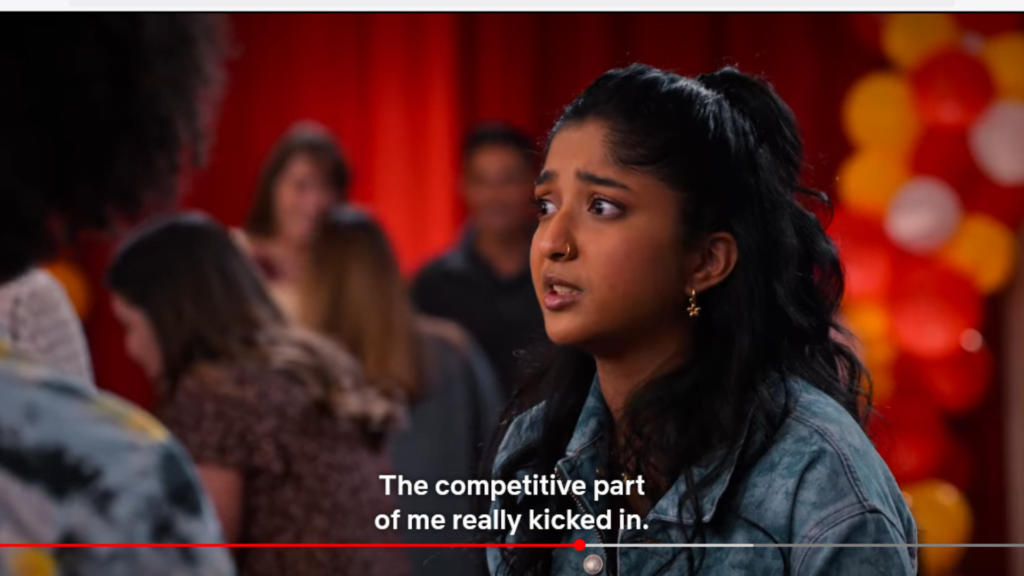
In Never Have I Ever, the women also rightfully expect their partners to show up for their work, and the men do it too of their own accord, be it Prashant bringing food to Kamala’s Ph.D. lab or Kamala’s friend helping her put her name in the research paper, Aneesha expecting Ben to be there for her soccer games, Nalini expecting her husband to be there for her when she receives an award, Trent and Paxton recording Eleanor’s auditions and helping her with the props, or Rebecca expecting her brother Paxton to arrange for her design assignments.
Never Have I Ever does have its own points of conflict, though. While it does destigmatise the term ‘feminist‘ through the words and actions of teenage girls, with the male History teacher calling the bra oppression, burning it in class, and extending extensive endeavours to study the women’s history movement in her class, it continually projects the upper-caste, upper-class culture.

The women in the show are confident of their intellect, be it Trent challenging Ben and giving him a talk about hurting her friends or her connecting with Addison over a brainy game romantically. Given the heckling, Devi exclaims that she doesn’t understand why Paxton is with her and yet, at times, course-corrects envy and insecurity by stating, “I am sorry. That wasn’t very feminist of me. I am sure all the rumours about her were perpetuated by the patriarchy.”
There are times when Devi discovers ”its cool to be smart”, and are also times Nalini comforts her saying, “You’re never too much, and you’re always enough.”
Also read: A sinful brown, female NRI’s visit to India
Featured image source: Netflix
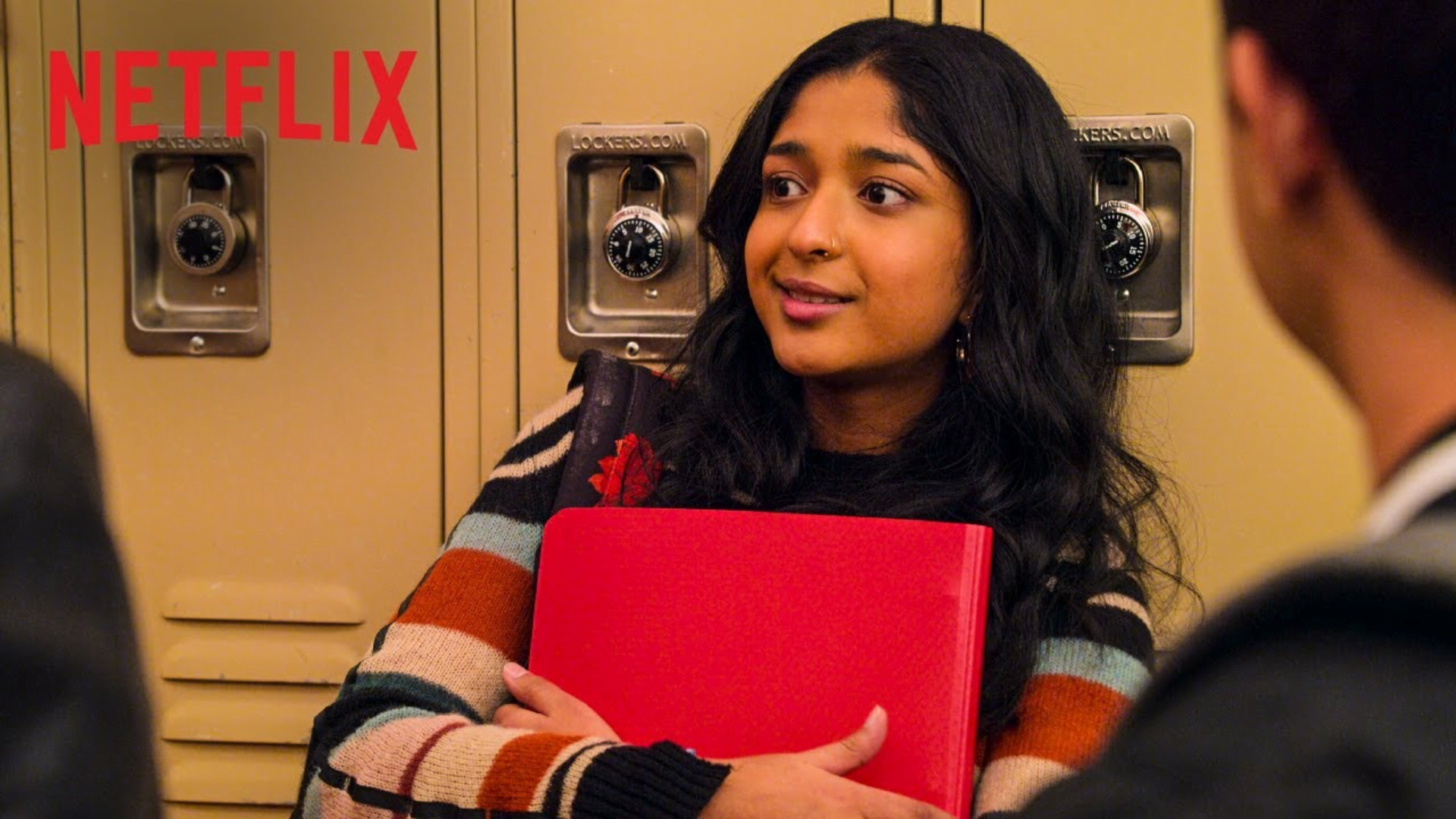

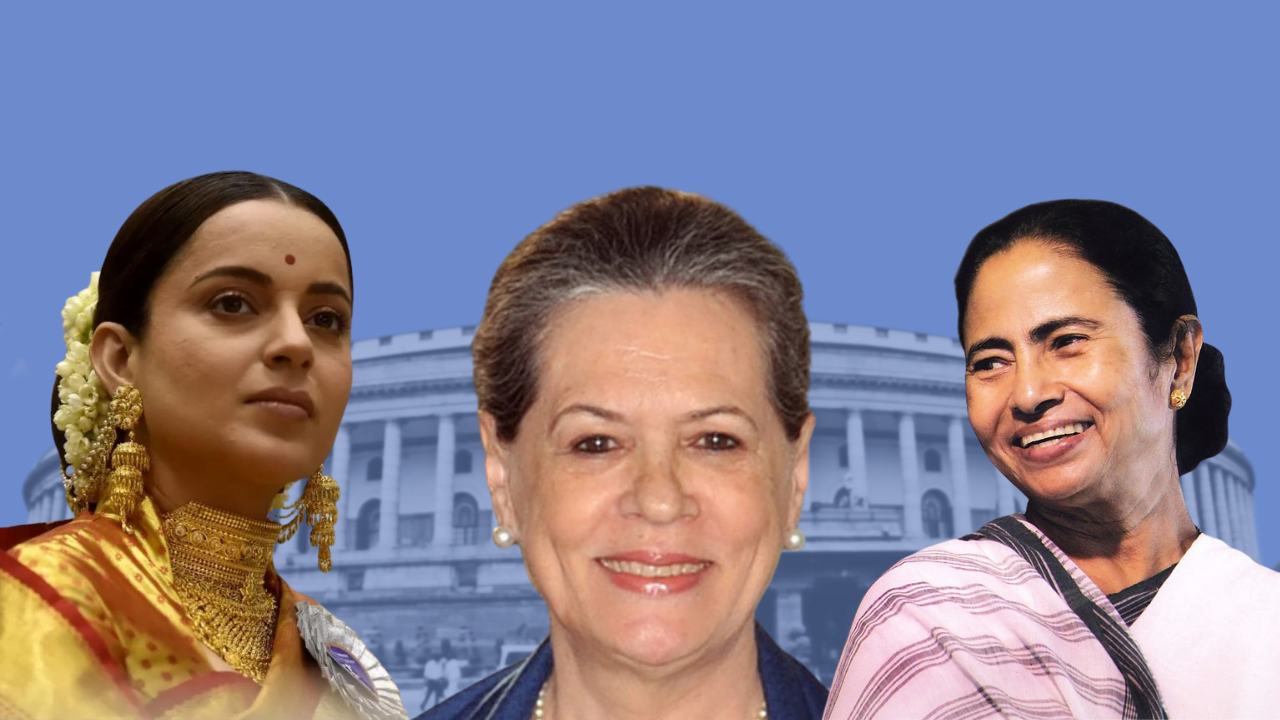
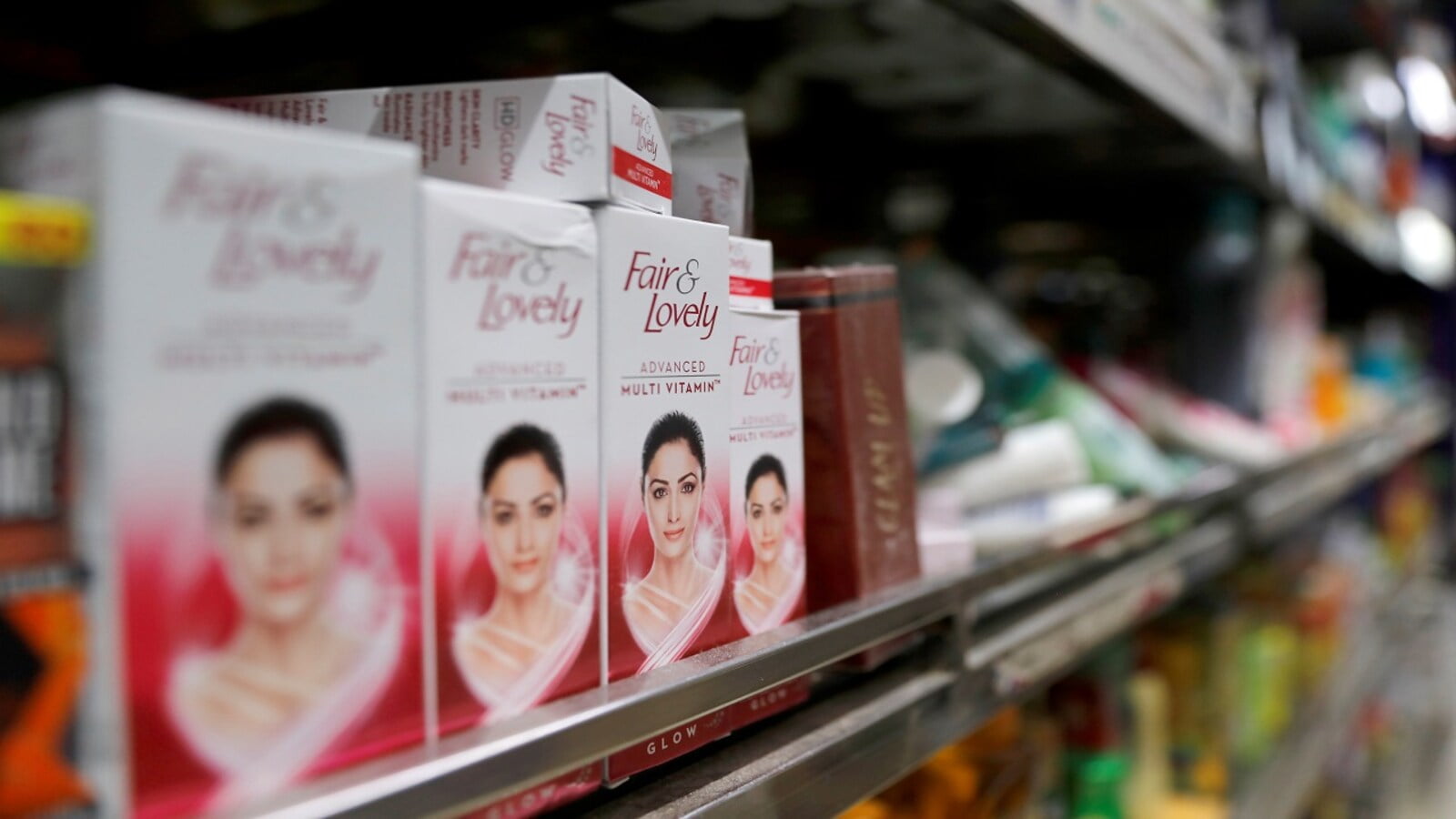
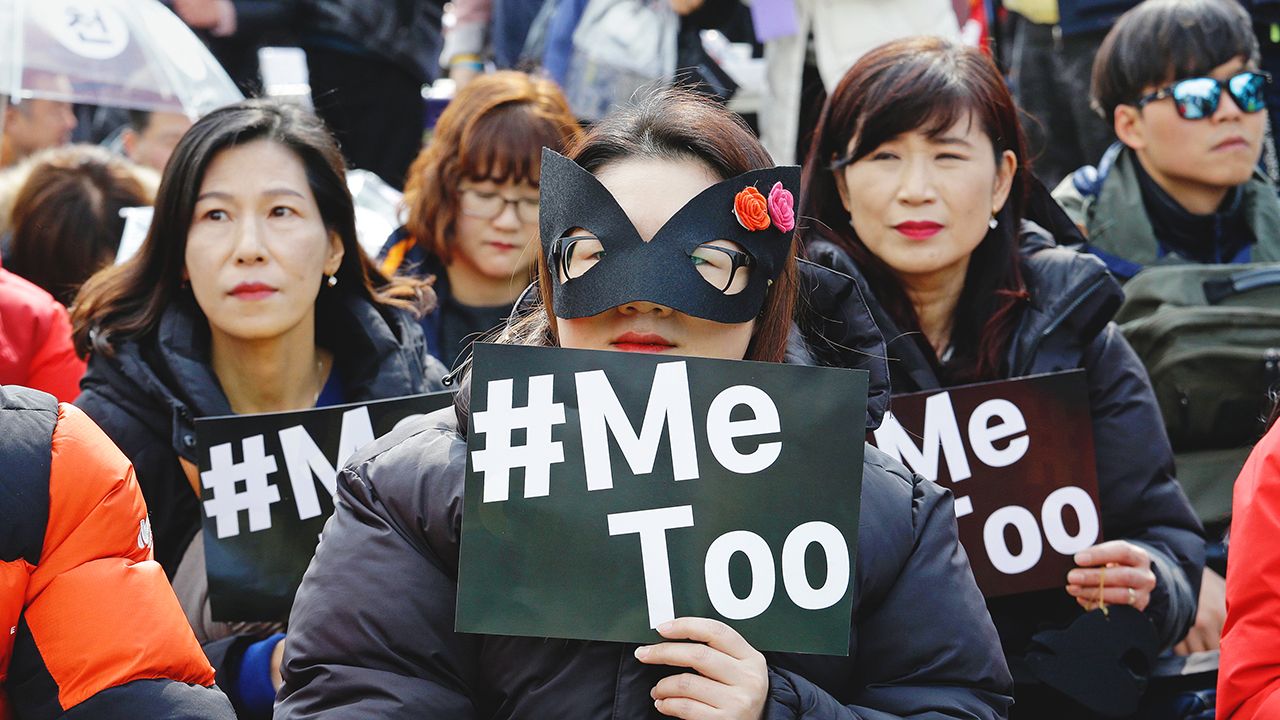

TV shows gaining TRPs from misandry is nothing new.
We should smash the patriarchy. We must begin by telling dad not to pay for our food, clothes, school and college fees.
Its good to know that the industry is changing and accepting woman as equal to man. What it takes to be a dusky woman in India? Colourism that costs lives of Asian women- NOT A FAIR DEAL !!!